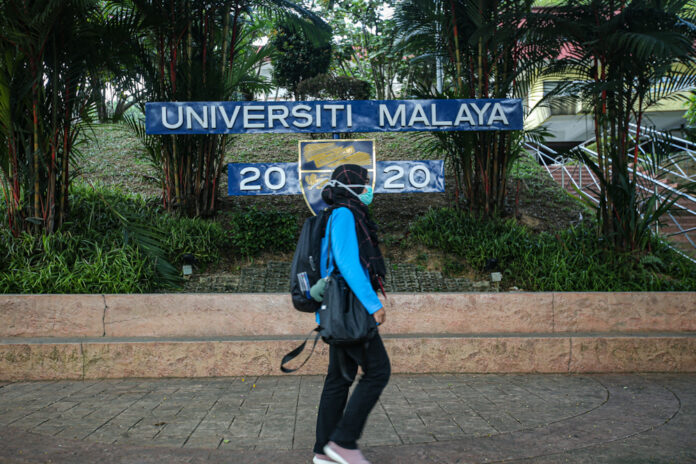KUALA LUMPUR, Jan 11– The permission given by the Ministry of Higher Education (MOHE) to six categories of students of higher learning institutions (IPT) to return to their campus to undergo Learning and Teaching (PdP) on a hybrid basis starting March 1, has not brought relief to them.
Some students have opined that such learning method will result in a longer time for them to complete an assignment as well as affect their subject-mastery level.
Nur Anisa Abd Halim, 23, a final year Materials Science student at Universiti Malaya, said although she was allowed to return to the campus that adopted the hybrid learning approach, there was not much of a difference from the online lessons conducted previously.
“I am currently working on a final year project that requires me to be in the laboratory. At the same time, I also have to attend online classes for this semester at my rented house.
“However, I am only allowed to go to the laboratory for a very limited time, namely just two days a week. I hope face-to-face classes will resume in full force,” she said when contacted by Bernama today.
According to her, the arrangements that were made to ensure compliance with COVID-19 prevention standard operating procedures (SOP) have forced her to take the whole semester just to finish the project that could actually be completed within two weeks if face-to-face classes run as usual.
The MOHE has previously said that the six categories include certificate, diploma, bachelor’s degree and postgraduate students who need to conduct clinical work and practicals requiring laboratories, workshops, design studios and special equipment.
Also allowed are students who do not have access to those facilities and a conducive environment to undergo PdP online; existing and new international students except those from the United Kingdom.
Sharing a similar sentiment, Siti Fatimah Huzaidi, a postgraduate student at a public educational institution, said although her research mode of study required her to have more face-to-face consultation sessions with her supervisor, she was not allowed to do so due to the SOP.
The 24-year-old student said despite staying on campus at the moment, she was still facing internet coverage problems in her hostel room making her difficult to consult with her supervisor online.
“I prefer face-to-face consultation as it is more effective. There will also be several issues including technical glitches during online consultations which can complicate the supervisory process,” she added.
Meanwhile, civil servant Suziyana Sukri, 46, said her son has been struggling to follow online learning since it was implemented in 2020 which has caused him to fail in several subjects.
“My son previously took a degree in Creative Multimedia course at a private university which has a tuition fee of almost RM1,500 for each ‘repeat’ subject. It had brought quite huge financial implications to me.
“I even attended conselling sessions conducted by the university to identify my son’s weaknesses but my son still found it difficult to catch-up. Then, I decided to transfer him to another institutions,” she said, adding that not all subjects are suitable to be taught online.
Meanwhile, Higher Education Department (JPT) Academic Excellence Division director Associate Professor Dr Wan Zuhainis Saad, when contacted, said the permission for face-to-face lessons to be conducted in full force depends on the National Security Council’s (MKN) decision.
“JPT is monitoring the situation from time to time. If the situation permits, we will bring this matter for MKN’s consideration,” she added.
According to Wan Zuhainis, JPT has also discussed with the Health Ministry on the need to administer COVID-19 vaccine booster dose to IPT students to better protect them from the virus.
















